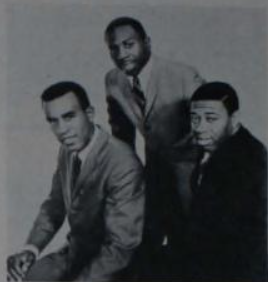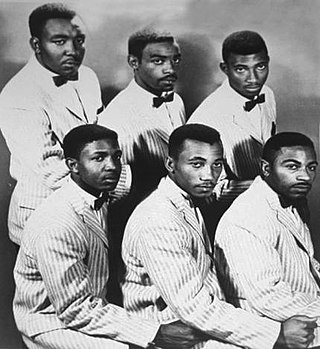Related Research Articles

Gene Francis Alan Pitney was an American singer-songwriter and musician.

A Man and a Woman is a 1966 French romantic drama film directed by Claude Lelouch and starring Anouk Aimée and Jean-Louis Trintignant. Written by Pierre Uytterhoeven and Lelouch, the film concerns a young widow and widower who meet by chance at their children's boarding school and whose budding relationship is complicated by the memories of their deceased spouses. The film is known for its lush photography, which features frequent segues among full color, black-and-white, and sepia-toned shots, and for its music score by Francis Lai.

Gilbert Bécaud was a French singer, composer, pianist and actor, known as "Monsieur 100,000 Volts" for his energetic performances. His best-known hits are "Nathalie" and "Et maintenant", a 1961 release that became an English language hit as "What Now My Love". He remained a popular artist for nearly fifty years, identifiable in his dark blue suits, with a white shirt and "lucky tie"; blue with white polka dots. When asked to explain his gift he said, "A flower doesn't understand botany." His favourite venue was the Paris Olympia under the management of Bruno Coquatrix. He debuted there in 1954 and headlined in 1955, attracting 6,000 on his first night, three times the capacity. On 13 November 1997, Bécaud was present for the re-opening of the venue after its reconstruction.

Norman Smith was an English musician, record producer and engineer. In the 1960s, he notably engineered all of the Beatles' EMI studio recordings up to the end of 1965 and produced three Pink Floyd albums including their first, The Piper at the Gates of Dawn (1967). He later had a successful recording career as Hurricane Smith, achieving a transatlantic hit single with "Oh Babe, What Would You Say" in 1972.
Catherine Roseanne Dennis is a British singer, songwriter and record producer. She was discovered as a teenager by music manager Simon Fuller, which led to her featuring on the hit dance single "C'mon and Get My Love" with D Mob in 1989.

Robert Joseph Bare Sr. is an American country singer and songwriter, best known for the songs "Marie Laveau", "Detroit City" and "500 Miles Away from Home". He is the father of Bobby Bare Jr., also a musician.

Elkie Brooks is an English rock, blues and jazz singer. She was a vocalist with the bands Dada and Vinegar Joe, and later became a solo artist. She gained her biggest success in the late 1970s and 1980s, releasing 13 UK Top 75 singles, and reached the top ten with "Pearl's a Singer", "Sunshine After the Rain" and "No More the Fool" (1986). She has been nominated twice for the Brit Awards.

Johnny Tillotson is an American singer-songwriter. He enjoyed his greatest success in the early 1960s, when he scored nine top-ten hits on the pop, country, and adult contemporary Billboard charts, including "Poetry in Motion" and the self-penned "It Keeps Right On a-Hurtin'" and "Without You".

The Impressions were an American music group originally formed in 1958. Their repertoire includes gospel, R&B, doo-wop, and soul.

Francis Albert Lai was a French composer, noted for his film scores. He won the 1970 Oscar for Best Music, Original Score and the Golden Globe Award for Best Original Score for the film Love Story. The soundtrack album went to No. 2 in the Billboard album charts and the film's theme, "Where Do I Begin", was a hit single for Andy Williams.
Raydio is an American funk and R&B vocal group formed in 1977 by Ray Parker Jr., with Vincent Bonham, Jerry Knight, and Arnell Carmichael. In 1978 Charles Julian Fearing and Larry “Fatback” Tolbert joined the band, along with Darren Carmichael.

Maurice Williams and the Zodiacs were an American doo-wop/R&B vocal group in the late 1950s and early 1960s. Originally the (Royal) Charms, the band changed its name to the Gladiolas in 1957 and the Excellos in 1958, before finally settling on the Zodiacs in 1959.
William Everett Justis Jr. was an American pioneer rock and roll musician, composer, and musical arranger, best known for his 1957 Grammy Hall of Fame song, "Raunchy". As a songwriter, he was also often credited as Bill Everette.

"Tell Him", originally "Tell Her", is a 1962 song that was written and composed by Bert Berns, who, when he did so, used the pen name of Bert Russell, and which was popularized through its recording by the Exciters. The song was recorded as "Tell Her" by Dean Parrish in 1966, and Kenny Loggins in 1989. Billboard named the Exciters version at No. 95 on their list of 100 Greatest Girl Group Songs of All Time. According to Jason Ankeny at AllMusic, the Exciters' version of "Tell Him" "...boasted an intensity that signified a sea change in the presentation and perception of femininity in popular music, paving the way for such tough, sexy acts as the Shangri-Las and the Ronettes."

"You Light Up My Life" is a ballad written by Joseph Brooks, and originally recorded by Kasey Cisyk for the soundtrack album to the 1977 film of the same title. The song was lip synced in the film by its lead actress, Didi Conn. The best-known cover version of the song is a cover by Debby Boone, the daughter of singer Pat Boone. It held the No. 1 position on the Billboard Hot 100 chart for ten consecutive weeks in 1977 and topped Record World magazine's Top 100 Singles Chart for a record 13 weeks.

"Love Potion No. 9" is a song written in 1959 by Jerry Leiber and Mike Stoller. It was originally performed by the Clovers, who took it to No.23 on the US as well as R&B charts that year. It reached #20 in Canada.

"In Dulci Jubilo"/"On Horseback" is a double A-side single and third overall by English musician Mike Oldfield, released in November 1975 by Virgin Records. It features an instrumental version of the German traditional Christmas carol "In dulci jubilo" and Oldfield's second version of the song following an earlier recording released as the B-side to his previous single, "Don Alfonso". The song "On Horseback" is the final and previously untitled section to "Ommadawn " from his third studio album Ommadawn, released just one month before. The single is certified silver by the British Phonographic Industry for selling 200,000 copies in the UK.
Nicole Croisille is a French singer and actress. She has appeared in 24 films between 1961 and 2005, and recorded several albums since 1961.

Sher-oo! is Cilla Black's third solo studio album, released on 1 April 1968 by Parlophone Records. The album reached No. 7 on the UK Albums Chart. The album's Paul McCartney-penned lead single "Step Inside Love" reached #8 on the UK Singles Chart. The song was the opening theme tune to the first four series of the BBC TV variety show Cilla. The album was re-issued in the 1970s with different cover art and re-titled Step Inside Love, on the EMI Music For Pleasure (MFP) label.
If Ever I See You Again is a 1978 American romantic drama film about a composer who rekindles his relationship with a former girlfriend. It stars Joe Brooks, who also co-wrote, produced, directed, and scored the film, and Shelley Hack. The film's theme song, "If Ever I See You Again", was a moderate hit for Roberta Flack, reaching #24 on the Billboard Hot 100 chart.
References
- 1 2 3 Colin Larkin, ed. (2002). The Virgin Encyclopedia of Fifties Music (Third ed.). Virgin Books. p. 229. ISBN 1-85227-937-0.
- 1 2 3 4 Murrells, Joseph (1978). The Book of Golden Discs (2nd ed.). London: Barrie and Jenkins Ltd. p. 115. ISBN 0-214-20512-6.
- 1 2 Jerry Keller at AllMusic . Retrieved May 1, 2009.
- ↑ Roberts, David (2006). British Hit Singles & Albums (19th ed.). London: Guinness World Records Limited. p. 298. ISBN 1-904994-10-5.
- 1 2 3 "Jerry Keller Biography". Oldies.com. Retrieved October 25, 2019.
- ↑ History of "Un homme et une femme"/"A Man and a Woman", Secondhandsongs.com, retrieved August 28, 2012
- ↑ As per the liner notes to the film's soundtrack album (ABC Records, cat. no. ABCD-828).
- ↑ "The Blue Grass Special - Jerry Keller". thebluegrassspecial.com. Retrieved October 25, 2019.